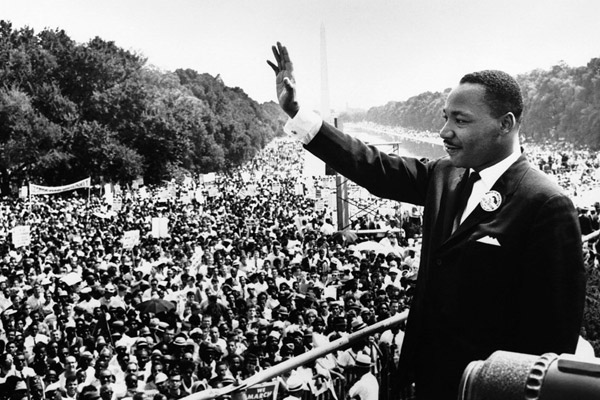
Religious News From Around the Web January 17, 2022
- By WRN Editorial Staff --
- 17 Jan 2022 --
Rev. Martin Luther King Jr.’s “I Have a Dream” Speech; Origins of Religious Freedom Day; Christians Returning to Church, but Not Always the Same Ones; Hindus Gather Despite COVID; SCOTUS Vaccine Mandate Blockage a Victory for Religious Freedom; False Apostate Stories Inflamed the Public
Rev. Martin Luther King Jr.’s “I Have a Dream” Speech
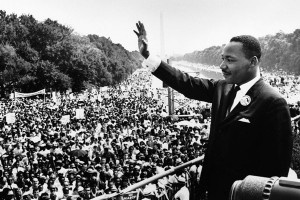 Today marks the birthday of Martin Luther King Jr. Here is a transcript of his celebrated “I Have a Dream” speech, delivered on Aug. 28, 1963, on the steps of the Lincoln Memorial, the speech was a powerful message of hope and racial and religious brotherhood. “With this faith we will be able to transform the jangling discords of our nation into a beautiful symphony of brotherhood,” he said. “With this faith we will be able to work together, to pray together, to struggle together, to go to jail together, to stand up for freedom together, knowing that we will be free one day.”
Today marks the birthday of Martin Luther King Jr. Here is a transcript of his celebrated “I Have a Dream” speech, delivered on Aug. 28, 1963, on the steps of the Lincoln Memorial, the speech was a powerful message of hope and racial and religious brotherhood. “With this faith we will be able to transform the jangling discords of our nation into a beautiful symphony of brotherhood,” he said. “With this faith we will be able to work together, to pray together, to struggle together, to go to jail together, to stand up for freedom together, knowing that we will be free one day.”
Origins of Religious Freedom Day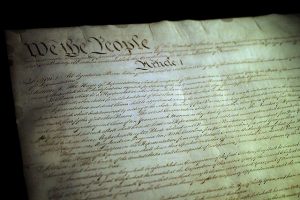
Christians Returning to Church, but Not Always the Same Ones
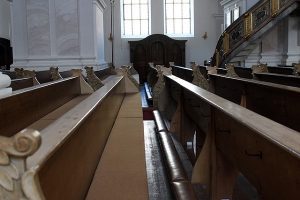 COVID-19 has propelled people toward life change of all kinds over the past two years, including career shifts, new relationships and relocation. For those who were already struggling with their church, the pandemic served as a catalyst to begin exploring other congregations. The acceleration of church membership turnover has required new strategies to welcome and assimilate new members into the church community, and spur volunteerism.
COVID-19 has propelled people toward life change of all kinds over the past two years, including career shifts, new relationships and relocation. For those who were already struggling with their church, the pandemic served as a catalyst to begin exploring other congregations. The acceleration of church membership turnover has required new strategies to welcome and assimilate new members into the church community, and spur volunteerism.
Hindus Gather Despite COVID
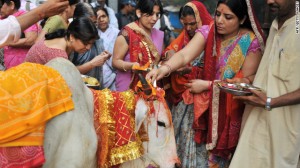 Tens of thousands of devout Hindus, led by heads of monasteries and ash-smeared ascetics, took a holy dip into the frigid waters of the Ganges River in northern India last week despite rising COVID-19 infections in the country. Hindu pilgrims congregated at the Sangam, the confluence of three rivers — the Ganges, the Yamuna and the mythical Saraswati — in Prayagraj city, 124 miles northeast of Lucknow, the state capital of Uttar Pradesh, to participate in the Magh Mela festival, one of the most sacred pilgrimages in Hinduism. They bathed in the Ganges waters, a ritual Hindus believe will wash away their sins and free them from the cycle of death and rebirth.
Tens of thousands of devout Hindus, led by heads of monasteries and ash-smeared ascetics, took a holy dip into the frigid waters of the Ganges River in northern India last week despite rising COVID-19 infections in the country. Hindu pilgrims congregated at the Sangam, the confluence of three rivers — the Ganges, the Yamuna and the mythical Saraswati — in Prayagraj city, 124 miles northeast of Lucknow, the state capital of Uttar Pradesh, to participate in the Magh Mela festival, one of the most sacred pilgrimages in Hinduism. They bathed in the Ganges waters, a ritual Hindus believe will wash away their sins and free them from the cycle of death and rebirth.
SCOTUS Vaccine Mandate Blockage a Victory for Religious Freedom
 A decision by the Supreme Court to block the Biden administration’s COVID-19 vaccine mandate for businesses was a major victory for religious liberty and the rule of law, said Southern Seminary President R. Albert Mohler. The nation’s highest court ruled that the Biden administration does not have the authority through the Occupational Safety and Health Administration (OSHA) to force all employers with more than 100 employees to require vaccination or weekly testing of all employees.
A decision by the Supreme Court to block the Biden administration’s COVID-19 vaccine mandate for businesses was a major victory for religious liberty and the rule of law, said Southern Seminary President R. Albert Mohler. The nation’s highest court ruled that the Biden administration does not have the authority through the Occupational Safety and Health Administration (OSHA) to force all employers with more than 100 employees to require vaccination or weekly testing of all employees.
False Apostate Stories Inflamed the Public
In the 20th century, Alberto Rivera (1935–1997) became famous as a Catholic priest who had apostatized, become a Protestant activist, and told horrific tales of priests raping nuns and killing the children they had conceived. To their credit Evangelical reporters found that Rivera had never been a Catholic priest and had spent years in jail for fraud and credit card theft when he said he had been serving as a Jesuit.



















